Advertisement
For Rwandan Man In Boston, New Arms Replace Those A Father Destroyed
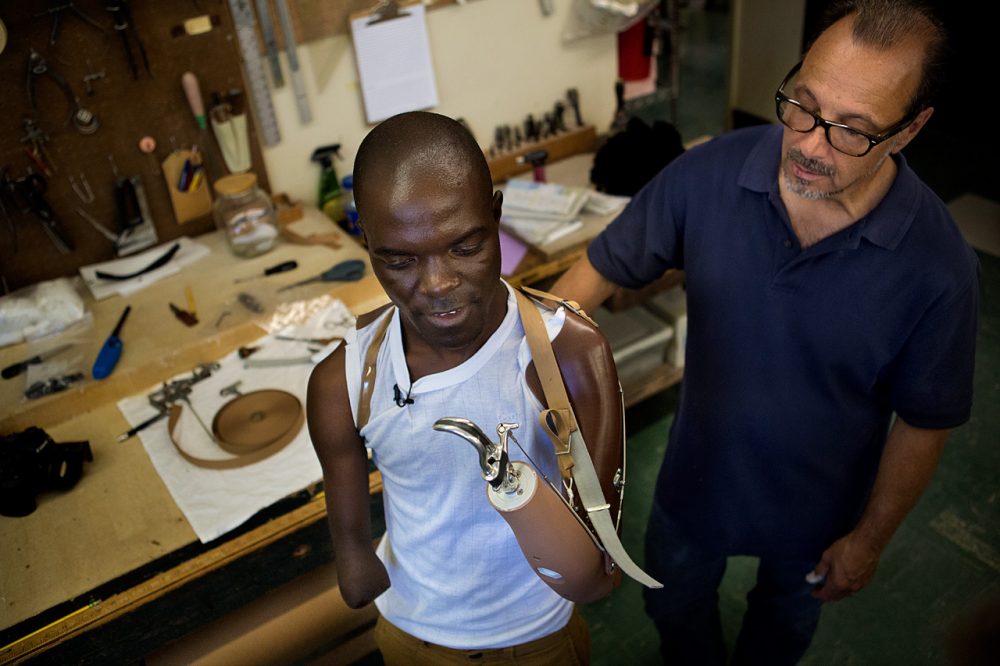
In the mid-1990s, following the Rwandan genocide, clashes between government forces and mostly Hutu rebels continued along the country’s border with then Zaire. One day, soldiers came to a mud brick home in a small village and questioned a father while his young son listened.
The father denied helping rebels, but the boy, then 6 years old, said yes, some men had slept in the house the night before. The soldiers took the father away.
When the father returned a day later, “he said that he’s going to do something that I won’t forget,” recalled Patrick Mbarushimana, now 22.
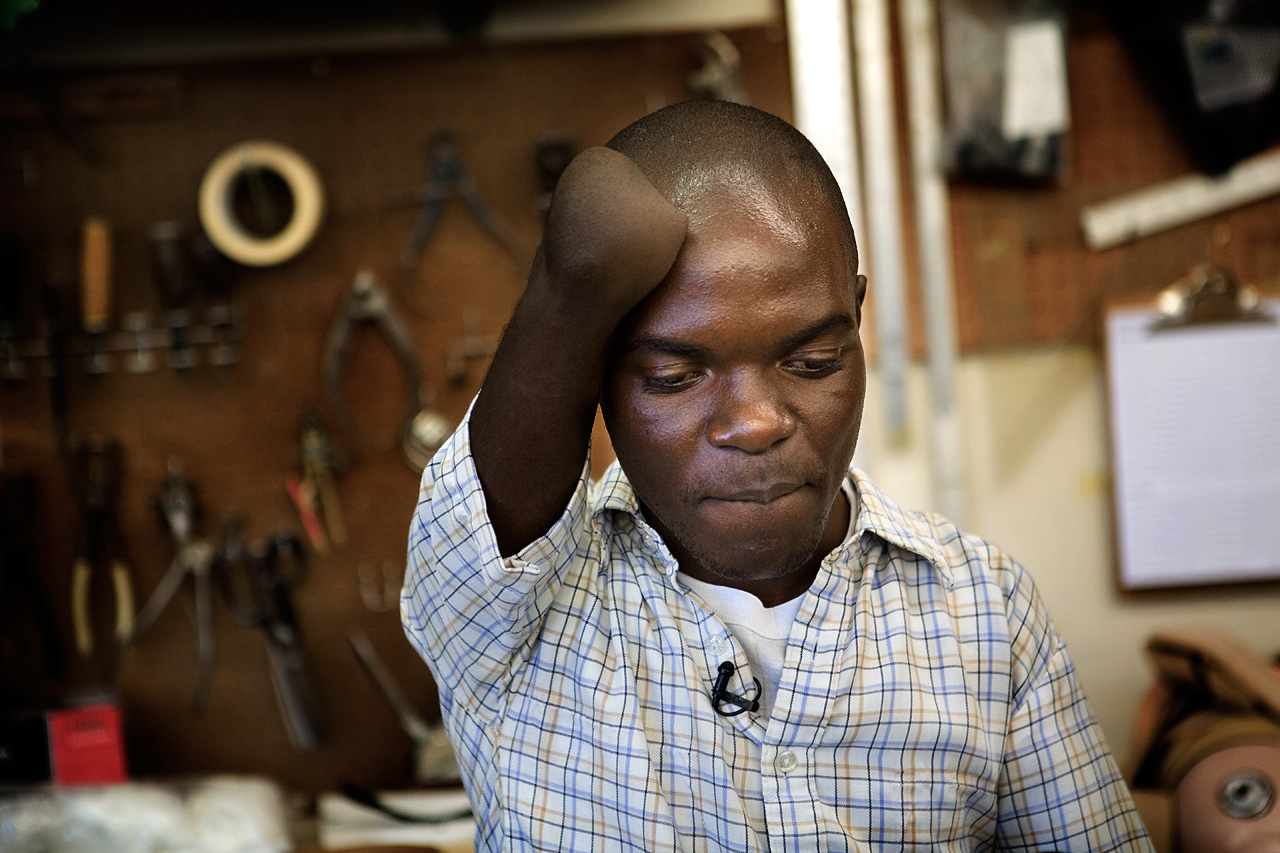
The details of Patrick’s punishment are murky. In one story that circulated through his village, the father tied Patrick by the arms to a tree. Gangrene set in before he was released. In Patrick’s memory, his father started a fire and sat on him, with his bound arms facing the blaze until rope burned through to the bone.
Patrick says his father left him to die, but he ran away to the soldiers and told them what happened. The father was arrested.
“We heard shootings within that prison,” Patrick said in a soft voice. “Immediately [the soldier] brought us to the car, taking us to the hospital.”
The soldiers told Patrick they had killed his father because if they didn’t, he would kill others.
At the hospital, doctors amputated Patrick’s right arm just below the elbow and his left arm about four inches below the shoulder. Patrick was wandering the hospital halls when a producer with CNN, Ingrid Formanek, arrived looking for survivors of a recent massacre.
“He was dirty, he was soiled, he was jumping into bed at night with patients to keep warm,” Formanek recalled. “That night I called my husband, I was upset. I said this child, we gotta do something. I don’t know why this child and not another child, but anyway, he got to me.”
Advertisement
Formanek partnered with Tharcisse Karugarama, a lawyer she knew at the time. Karugarama, who later became Rwanda’s minister of justice, offered to give Patrick a home.
“I provided the emotional and psychological support,” Karugarama said. “She did everything else.”
Formanek paid for Patrick’s schooling and other expenses. She ordered a set of artificial arms through the mail when Patrick was younger. They didn’t work out, but Formanek and Karugarama never gave up.
'This Is Incredibly Amazing'
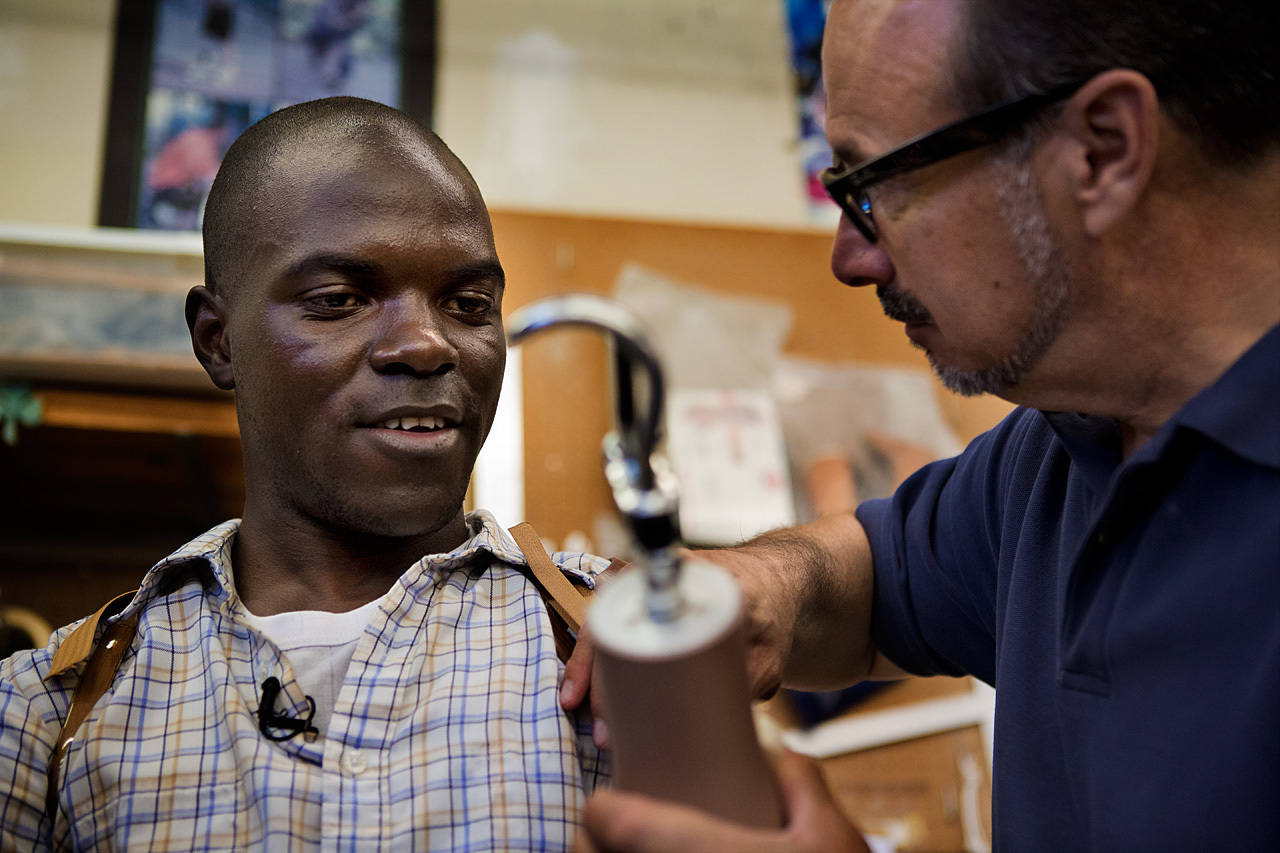
At United Prosthetics in Dorchester, Greig Martino, grandson of the company’s founder, pounds the final rivet into a new right forearm for Patrick as he waits downstairs. The prosthetic is a brown tube that ends in tong-like, curved hooks.
“Ooo,” Patrick says after sliding the soft flesh below his elbow into the socket. He stretches the arm out several times before raising it toward his face. “Now I can scratch. This is incredibly amazing.”
Both the right arm and the left will be held on with straps that loop around the opposite shoulder. Patrick pulls against the harness, using what’s left of his arm, underarm and back muscles to extend the artificial limb. As he extends, a cable that runs through the arm tightens, pulling open the two hooks.
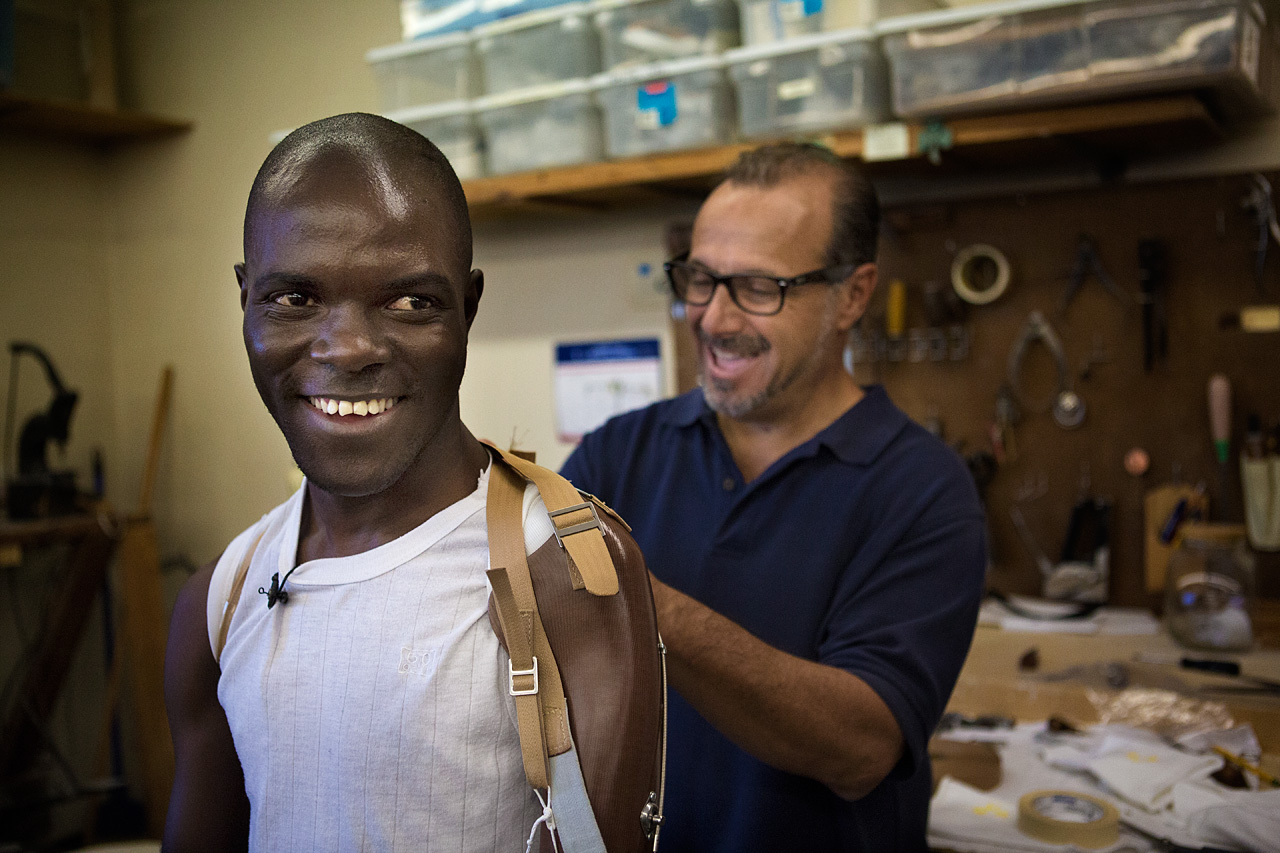
“Now can I hold you?” Patrick asks, reaching out to shake Martino’s hand. Martino obliges.
“Hello, sir,” Patrick says.
“Hello, sir,” Martino responds. “How are you?”
“Great,” Patrick says with a smile Martino returns.
A Public Disability
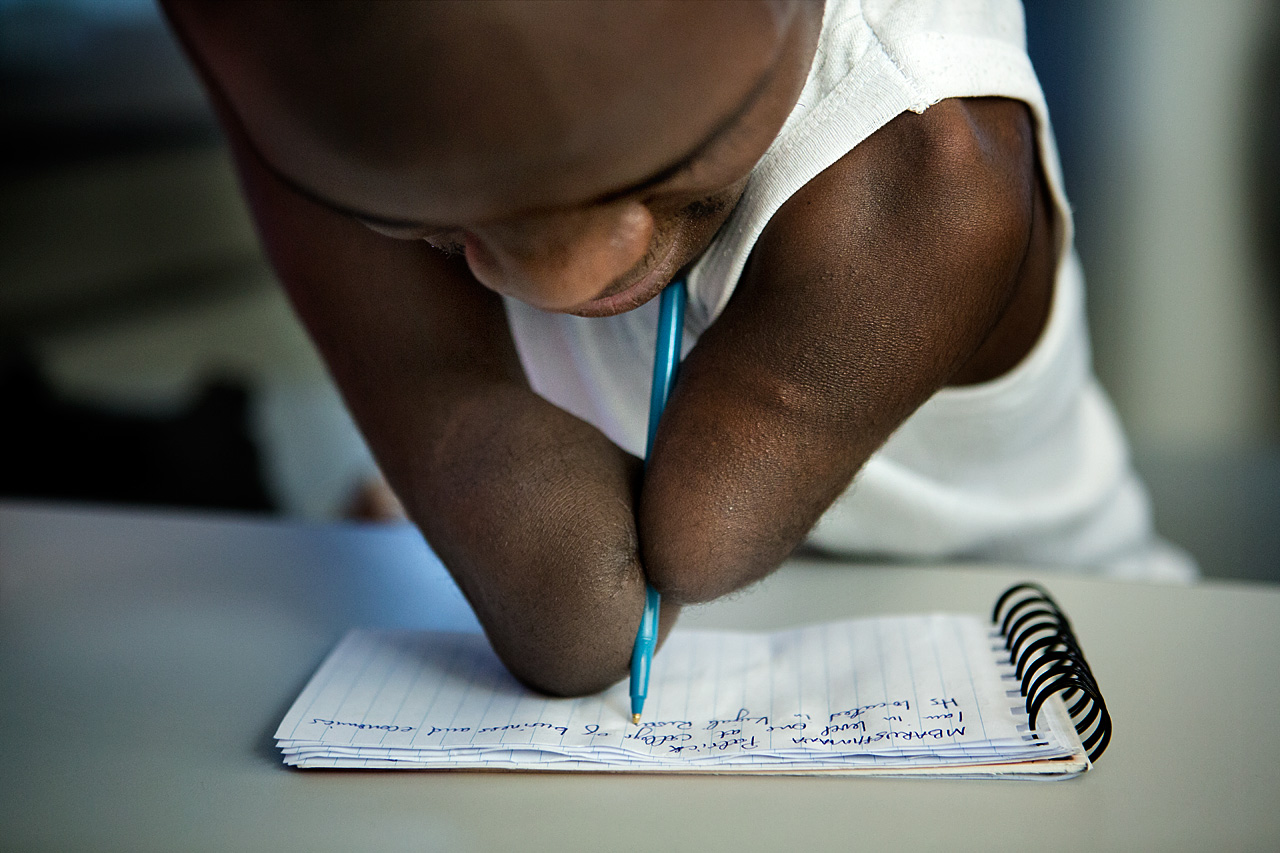
The arms will change his life, Patrick says, although he’s surprisingly adept without them. He’s an accomplished artist, having learned to pick up a pencil with his lips and teeth, then place it between what’s left of his two arms. He plays soccer, sings and produces music, rides a bike, and swims.
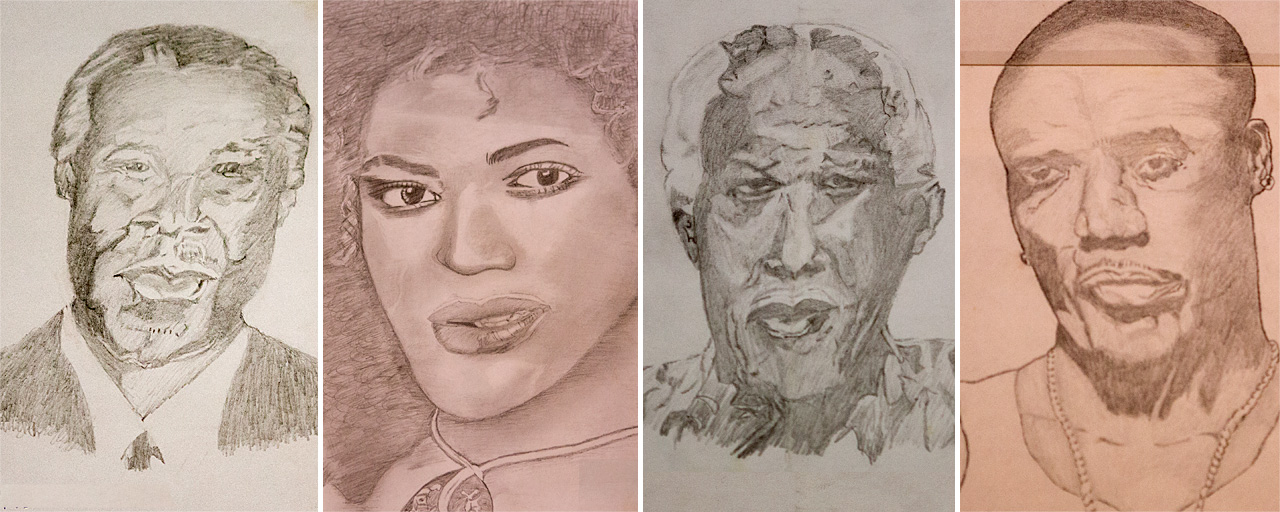
But he can’t go to the bathroom by himself, bathe or get dressed, and he’s tired of having such a public disability.
“People who sees me ask me very many questions,” Patrick says. “Others, they cry."
“Maybe sometimes I will be able to put on shirts with long sleeves, so that people won’t know, unless they see the hook, that I don’t have arms,” Patrick says, adding that he’s not ashamed of how he looks.
Patrick will probably still need help with the buttons from 18-year-old Maurice Murenzi, who’s been Patrick’s constant companion for 16 years.
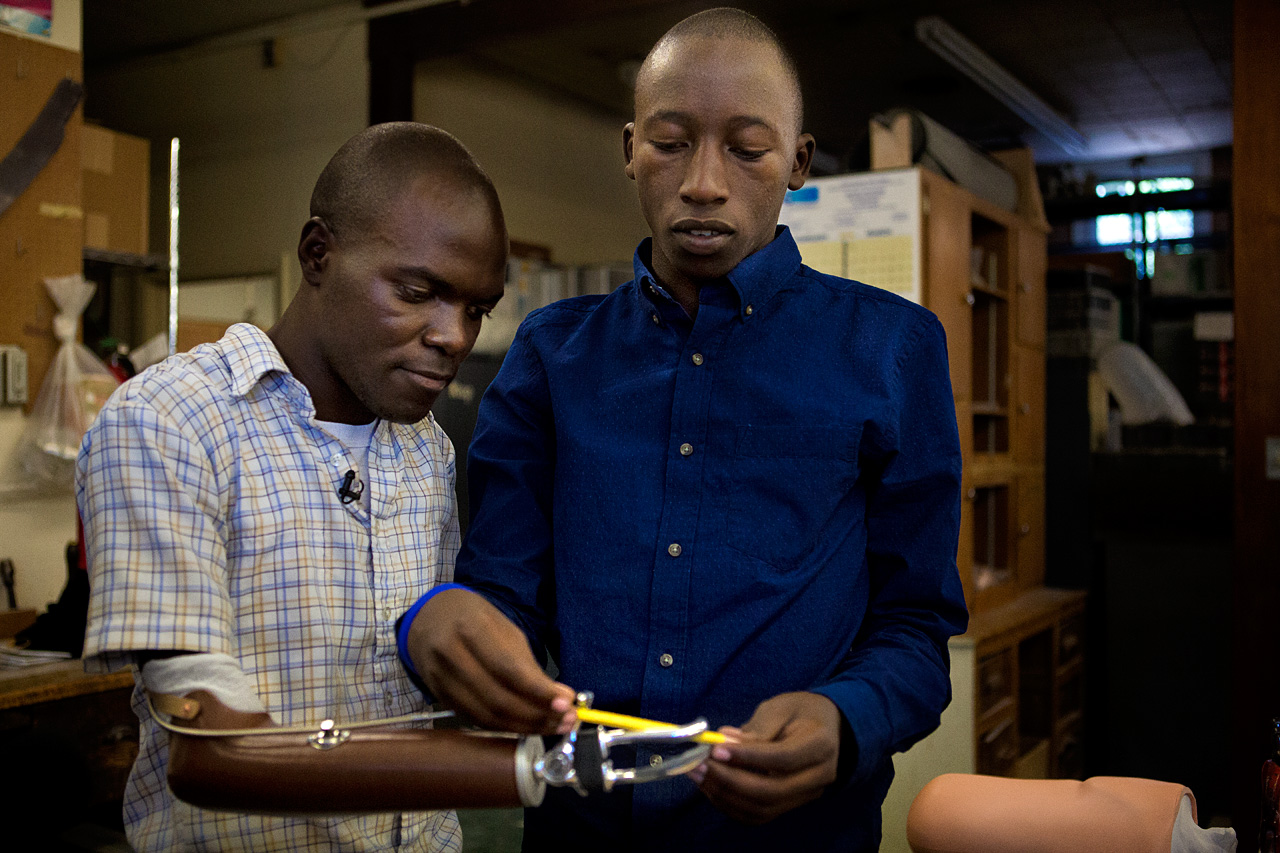
“Since I met him, we became brothers,” Murenzi says.
The boys came of age after the 1994 genocide, during which 800,000 Rwandans were killed. Most of the dead were Tutsi. Most of the killing was done by Hutus. Patrick and Maurice were adopted into a home that includes Tutsis and Hutus. The young men say tribal differences don’t matter in their relationship.
A Low-Tech Solution
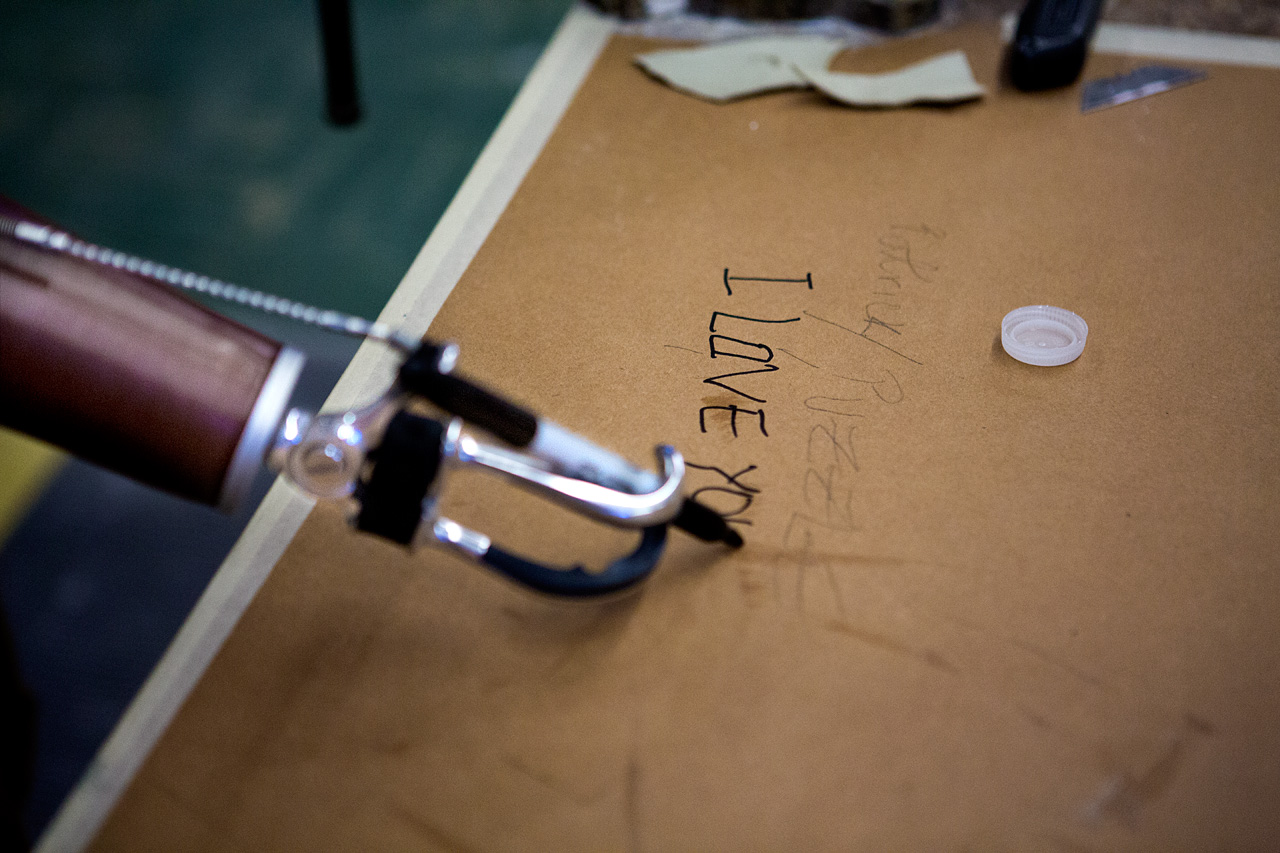
"You’re keeping your chest out, like this,” says Dr. Brendan Green, modeling the stance Patrick will use to move his new left arm. This fitting is tricky. Muscles around what’s left of the 4-inch limb haven’t been used in years.
A higher tech, more robotic arm might help, but those models require regular maintenance not available in Rwanda. So for Patrick, Dr. Green and the team at United Prosthetics went in the other direction.
“This is as low maintenance as it gets,” Green says. “This prosthesis, given all the spare parts that we will give him, will last 10 to 20 years.”
“Together we will do something greater to this world, me and you,” Patrick says to Green and Martino.
“We make good team?” Martino asks. Patrick nods. "All right, brother, it works,” Martino says.
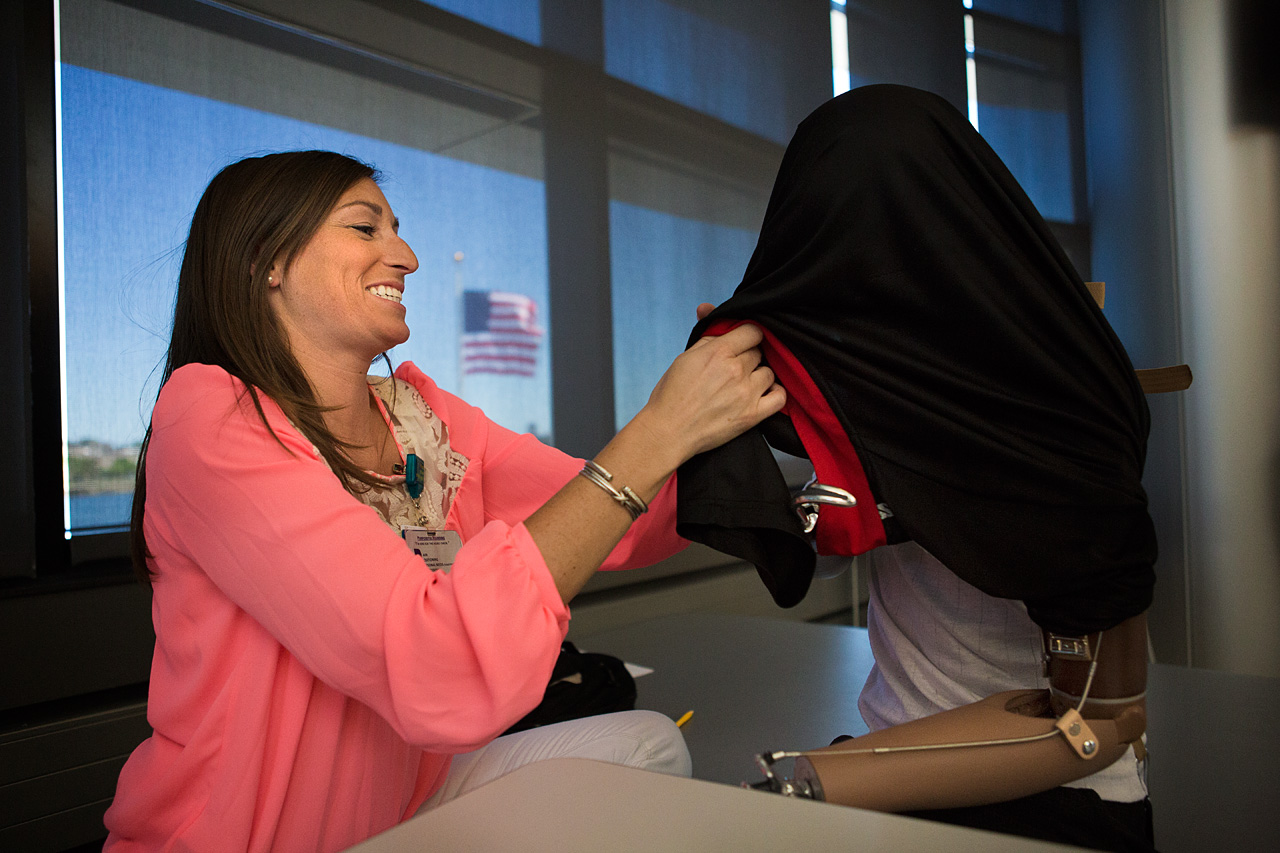
Three days later, Patrick is at Spaulding Rehabilitation Hospital in Boston. The Braintree-based Ray Tye Medical Aid Foundation is funding the $40,000 to $45,000 cost of Patrick’s prosthetics and rehab.
Patrick sits across a table from his occupational therapist, Samantha Conley. His black Manchester United soccer jersey lies between them.
“Can you put your head in first?” Conley asks.
Twenty minutes after he started, the shirt is stuck on Patrick’s head.
“This is a very great work,” Patrick says, breathing as if he’s just finished working out.
“Where are you?” Conley asks, laughing.
“I’m lost,” Patrick says, returning the laughter.
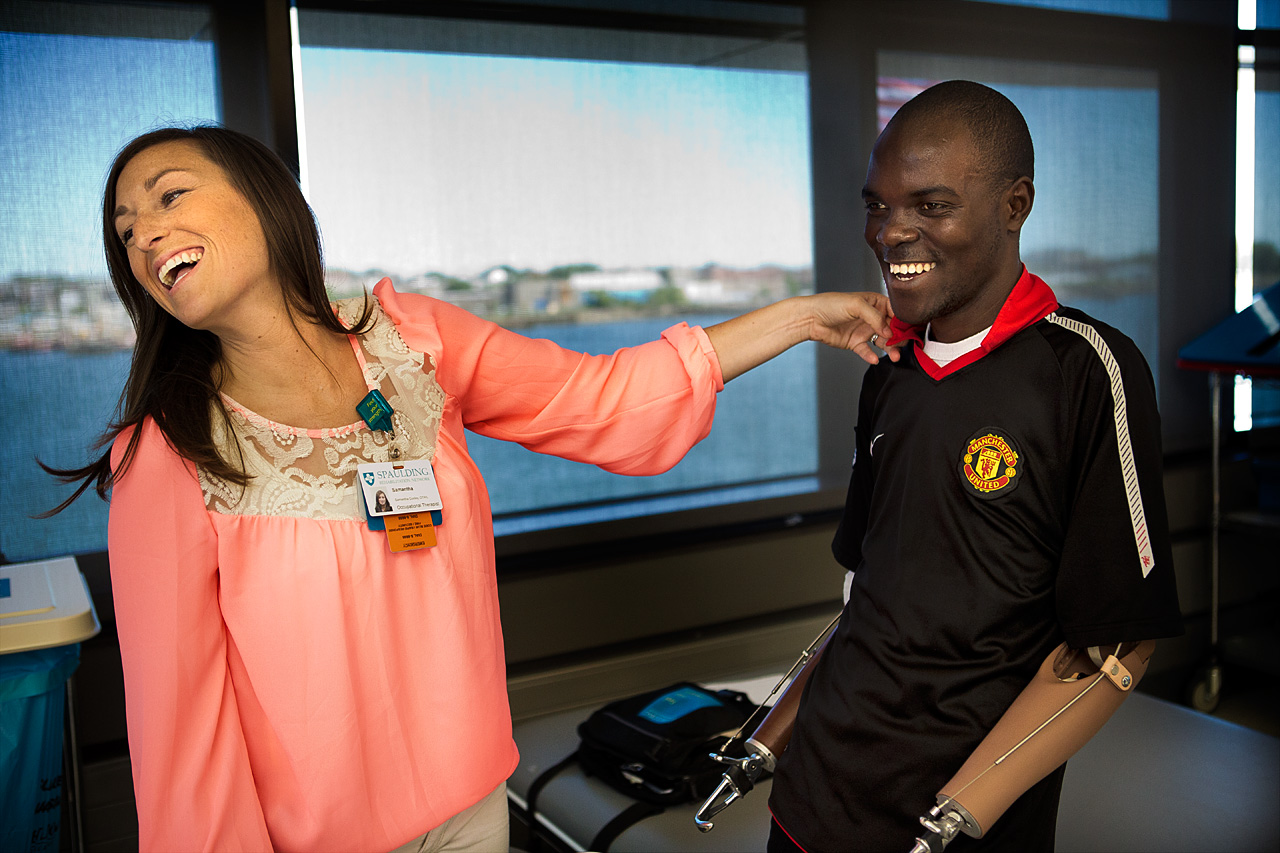
At the end of the appointment, Patrick, who’s produced a handful of songs and videos in Rwanda, delivers a gift for Conley.
“Can I rap for you?” he asks.
Patrick, holding a microphone with one hook hand, belts out "Dufatanye," a song about “unity, let’s work together, as one.” Patrick uses the stage name Puzzle when he raps, because, he says, the whole picture of his life is not yet clear.
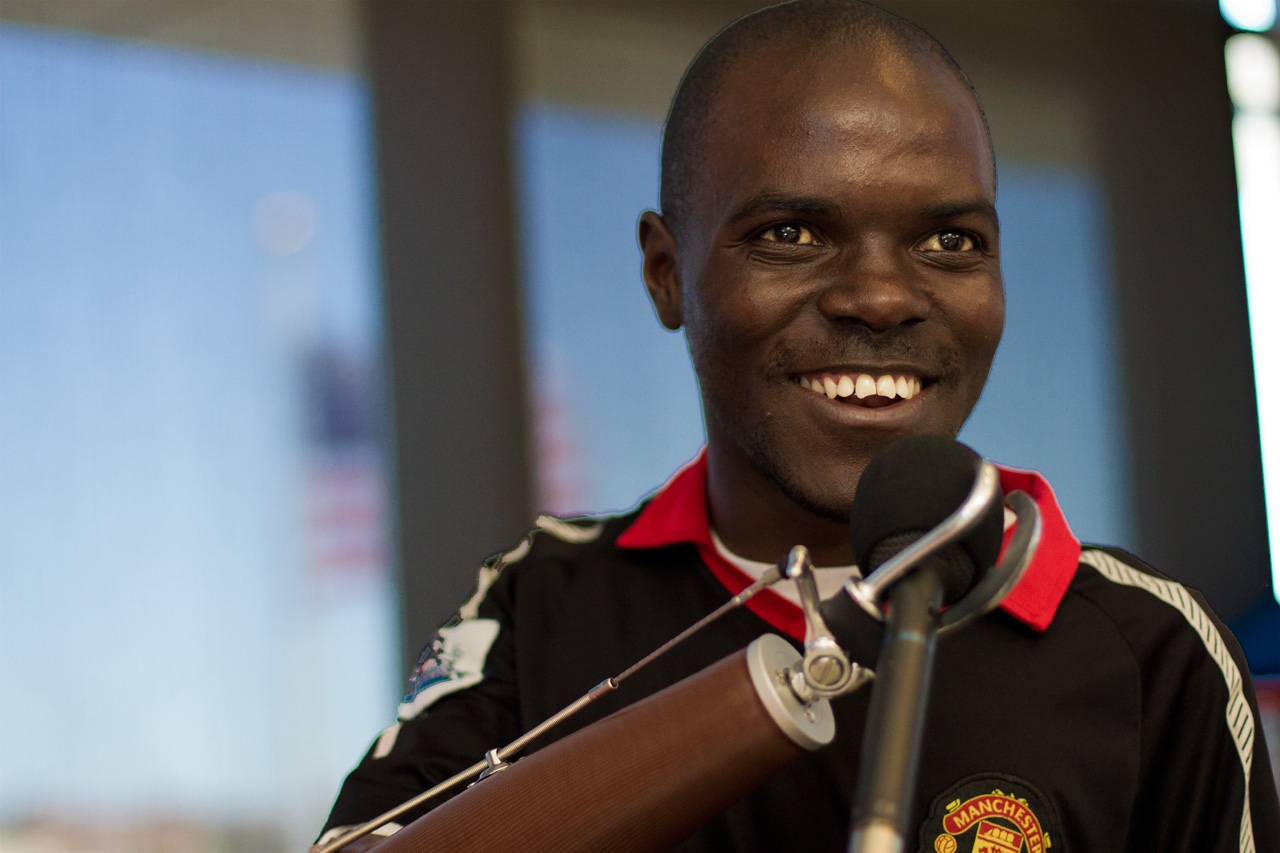
Rwanda has won praise since the genocide for bringing Tutsis and Hutus together to improve the country’s health and economic well-being. But a recent Human Rights Watch report raises concerns about an increase in what it says are politically motivated detentions and disappearances.
Patrick, an incidental peace ambassador, will be in Boston for a few more weeks, spreading his message of resilience and hope.
